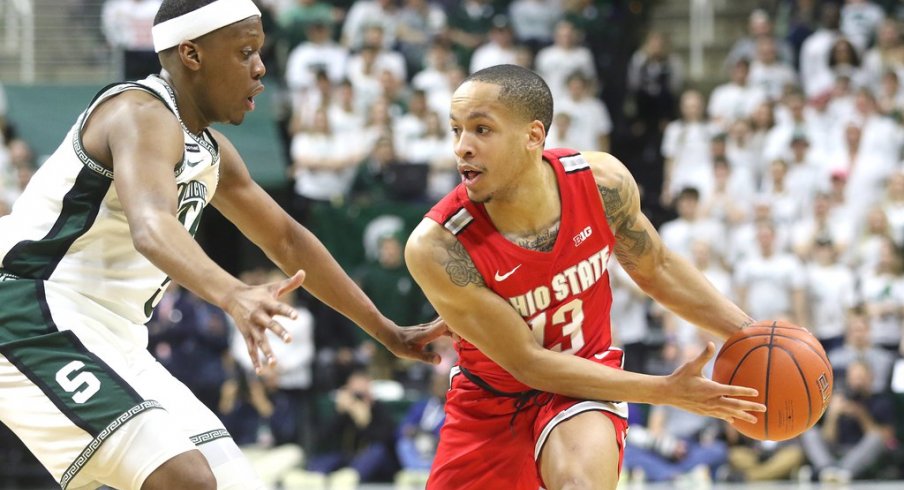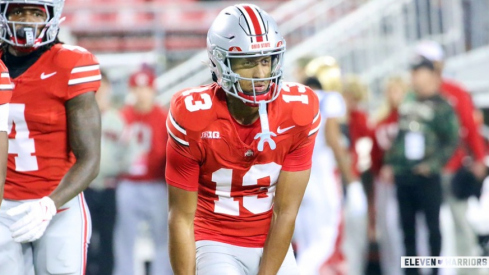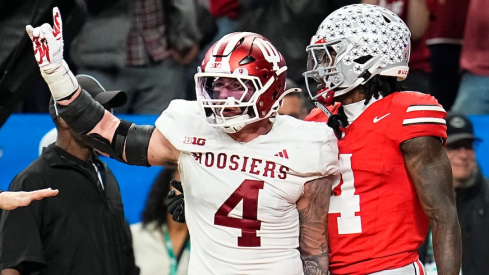This was supposed to be the Big Ten's week of glory.
It was supposed to start with the culmination of an incredible regular season in the conference tournament and end with ten of the conference's fourteen teams getting a bid to the Big Dance.
Instead, all of the players are back home and the tournaments are canceled. A season cut short and a world without sports.
It hurts a little more in the Midwest. The Big Ten was far and away the best conference in the nation, and after one of the most exciting regular seasons in recent memory, it is a shame that no one team is able to claim superiority over the rest of the conference.
Because of this, we turn to the computer. It is not as pretty as a game-winner or as satisfying as watching a team cut down the nets in Indianapolis, but it may help some fans find closure after the hotly-contested season met an unfortunate, premature end.
Using Ken Pomeroy's advanced ratings, I created a simple model to develop a point spread and win probability for every matchup in the Big Ten tournament. The model's point spread is extremely similar to Vegas', where the number beside a team indicates the spread and the sign indicates the favorite. Then, I simulated each matchup 1,000 times with no home-court advantage and the team with more "wins" in those trials moved on. The process was repeated until the finals and a single team was crowned the Champions the Simulated Big Ten Tournament.
Without further ado, let's get started.
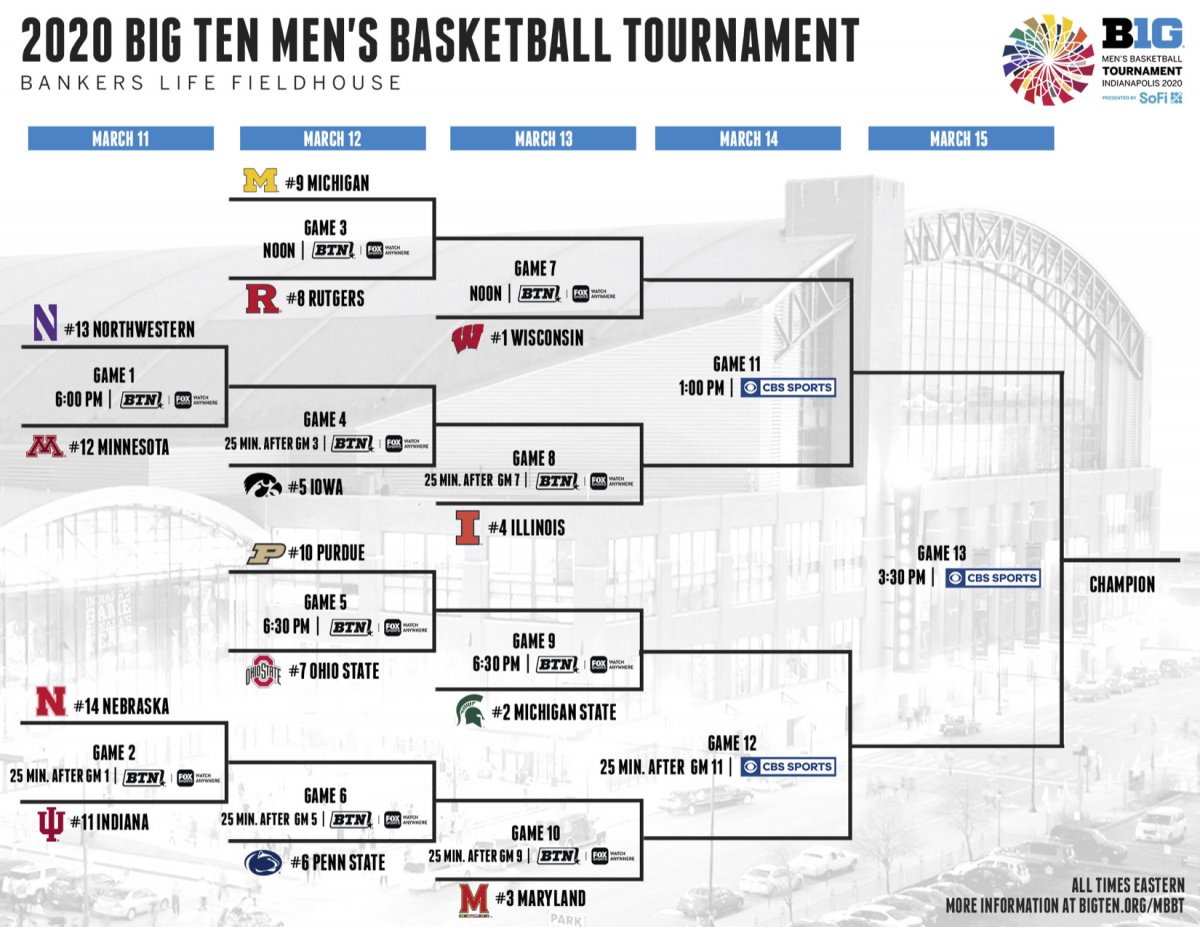
With Minnesota and Indiana advancing on March 11, our second-round matchups are Michigan (-1.63) versus Rutgers, Iowa (-0.56) against Minnesota, Ohio State (-2.39) versus Purdue, and Penn State (-1.51) versus Indiana. In the four contests, no team won more than 60% of its simulated games and Minnesota upset Iowa, winning 515 of the 1,000 simulated contests. Ohio State beat Purdue 592 times, recording the highest number of wins in the second round.
Onto March 13, the third-round games include Michigan (-0.77) against top-seeded Wisconsin, Minnesota (-0.40) versus Illinois, Michigan State (-1.22) versus Ohio State, and Maryland against Penn State (-2.21). The favorites, not the higher seeds, would win all four games. Michigan and Minnesota would advance to one semifinal while Michigan State and Maryland met in the other. The Spartans would go on to defeat the Wolverines in the finals, ending this iteration of the simulated bracket.
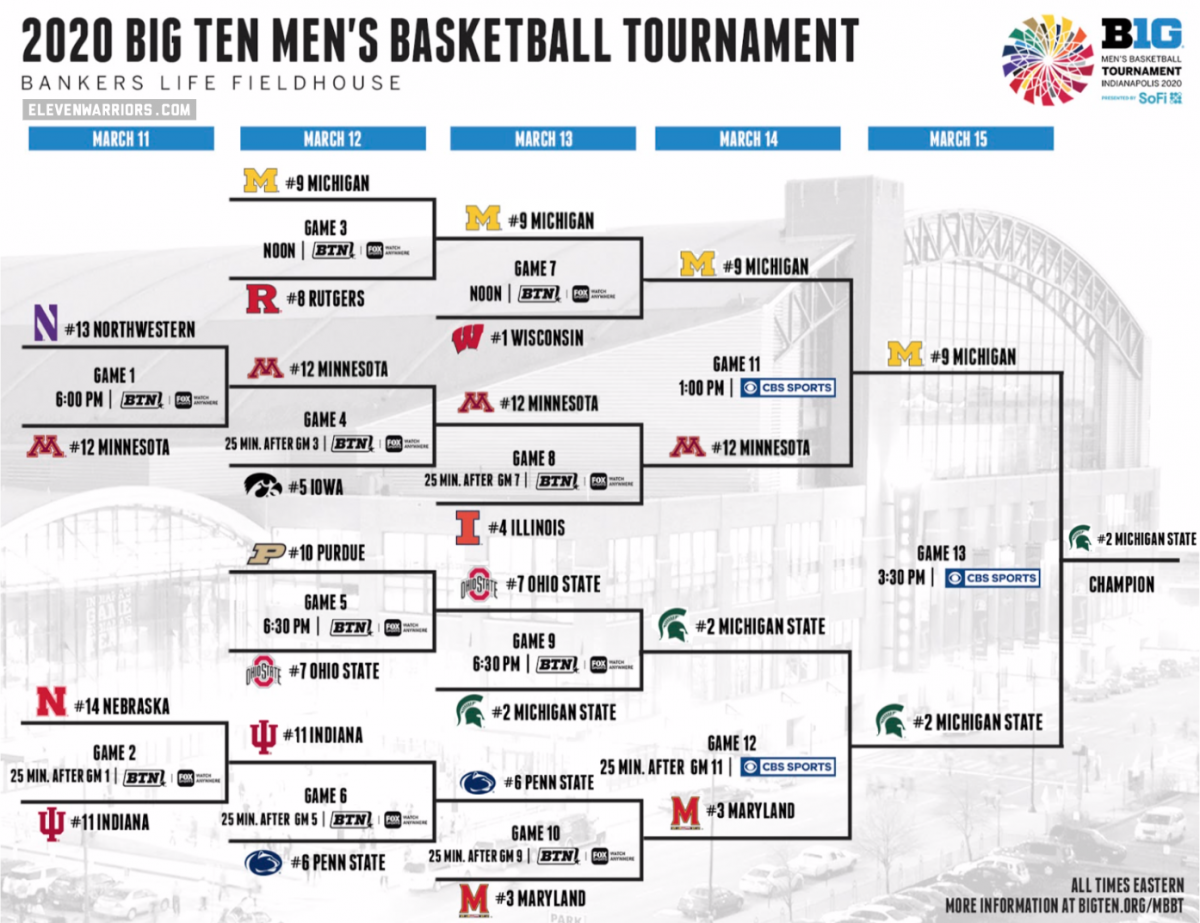
Ohio State's contests with Michigan State in the third round, however, were the most-competitive simulation in the entire project. The Buckeyes won 496 games, just eight fewer than the Spartans' 504, making the matchup basically a coin flip. Chris Holtmann even seemed quietly confident about his squad's chances against Michigan State should they play for the third time.
With that, let's flip that simulated third-round game that ended the Buckeyes' season and give it to Ohio State. Then, the semifinals would include Michigan (-1.55) versus Minnesota and the Buckeyes (-0.74) against Maryland. The favorites would win once again, setting up an iconic finale for one of the best basketball seasons in recent memory.
Michigan and Ohio State would meet in the finals, a dream come true for fans on both sides of the rivalry. The Wolverines would be seeking their third conference tournament title in four years and the program's first under head coach Juwan Howard. The Buckeyes, on the other hand, would be competing for their first conference tournament title since their three-in-four stretch in 2010-2013.
Ohio State (-1.42) would be a slight favorite over Michigan and the Buckeyes won 56% of the games, giving Chris Holtmann his first Big Ten tournament championship.
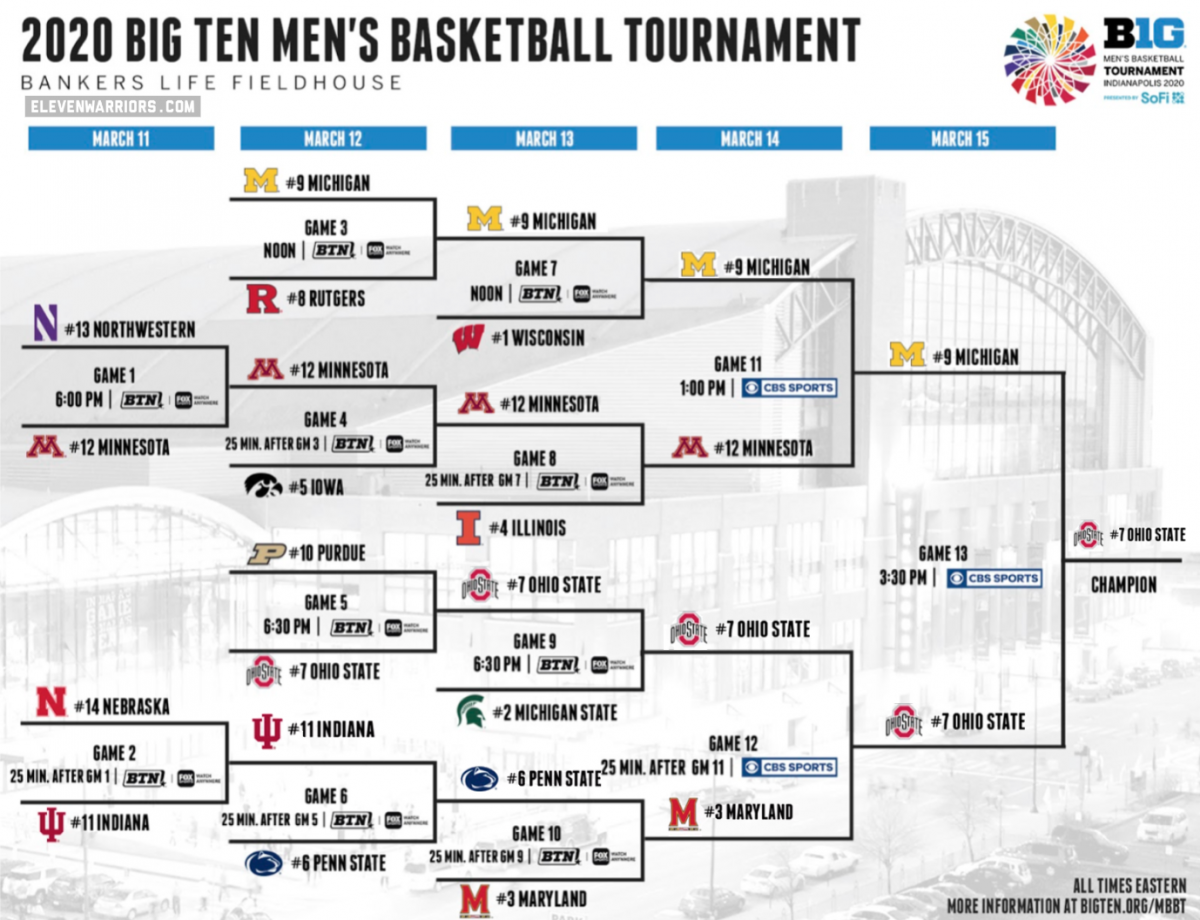
It should not come as a surprise, however, to see Michigan State and Ohio State at the top of the conference; the two have been the best teams in the conference for most of the season and are the top two Big Ten teams nearly every major advanced rating.
According to our model, the Buckeyes would be favored against every other team in the Big Ten except the Spartans, although the conference's depth is also a crazy sight to see.
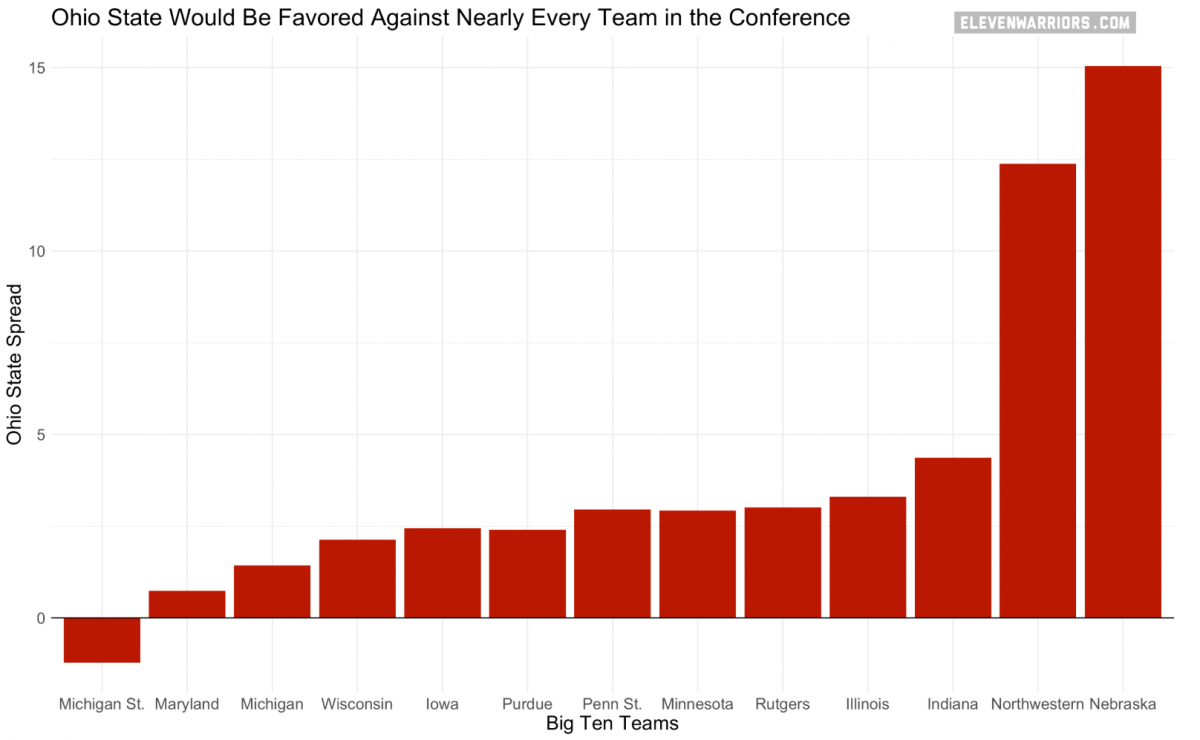
Because of this, it is not hard to imagine a world where Kaleb Wesson wins the conference tournament's Most Valuable Player award while Andre Wesson and Danny Hummer are cutting down the nets as seniors. The Buckeyes' biggest obstacle on the court was nearly equivalent to the other side of a coin.
Despite its struggles, Ohio State was one of the best teams in the nation this season. Inconsistency, injuries, and a tough conference held the Bucks down for a while, but the local team was still one of the most feared teams in the nation heading into the postseason.
Unfortunately, we will never truly know how Ohio State's season would conclude. For now, Buckeye fans can only claim the 2020 Big Ten Simulated Tournament Champions.
